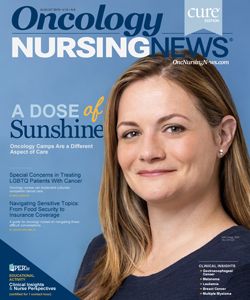Navigating Sensitive Topics: From Food Security to Insurance Coverage
Find ways to bring up these topics in patient conversations, while mitigating feelings of shame.
Medical care alone is not enough to make and keep a patient healthy. Total wellness requires an understanding of not only social determinants of health, but also how they impact the health outcomes of our patients. Examples may include financial insecurity, housing, employment, health literacy, social support, access to care, and access to food.
According to Healthy People 2020, “Social determinants of health are conditions in the environments in which people are born, live, learn, work, play, worship, and age that affect a wide range of health, functioning, and quality-of-life outcomes and risks.”1
We cannot assume that how a person dresses and where they live automatically excludes them from financial burden, food insecurity, and other barriers. Due to high deductibles and co-pays, even patients who have insurance are often underinsured. Job loss can also deplete a family’s savings and force them to seek support for food and other financial assistance programs. Even when resources are available, patients often struggle with asking for help due to the significant shame and stigma that can accompany these needs. As a result, patients and their families suffer in silence.
Oncology nurses can help patients break down these feelings of stigma and shame. We can begin by understanding the sensitivity of these topics and then script our conversations to ensure they understand that they are not alone, resources are available, and we care. Nurses must be present by listening and responding with empathy.
Questions can easily be incorporated into normal conversations and prefaced with the following: “Today, even with insurance, many people find they are struggling to find food and other financial resources. You are not alone. Food is important to your health and the health of your family.” Multiple health assessments and validated tools are available for screening. Many cancer programs have integrated the National Comprehensive Cancer Network (NCCN) Distress Screening Thermometer into their practice.2 Although the tool is not perfect, it can help to identify areas of concern before they become a crisis.
Identifying patients at risk for food insecurity is equally important, especially if this is not being asked during a normal assessment. The Hunger Vital Sign3 is an excellent example. This 2-item assessment has high sensitivity and specificity, and it has been validated in households with children as well as in high-risk adults. The 2 items are as follows:
1. Within the past 12 months, we worried whether our food would run out before we got money to buy more.
2. Within the past 12 months, the food we bought just didn’t last, and we didn’t have money to get more.
Oncology nurses, are often on the front line with identifying clinical and nonclinical barriers that can impact their patient’s outcomes.
Understanding social determinants of health are important when having sensitive conversations. Screening all patients is not a guarantee, but asking questions in an empathetic manner can open up conversations and develop a longstanding relationship of trust. Patients are more likely to confide their fears when they realize they are not alone and someone truly cares.
References
- US Office of Disease Prevention and Health Promotion. Social determinants of health. Healthy People 2020 website. healthypeople.gov/2020/topics-objectives/topic/social-determinants-of-health Published 2014. Updated June 28, 2019. Accessed June 2019.
- NCCN Distress Thermometer and problem list for patients. NCCN website. nccn.org/patients/resources/life_with_cancer/pdf/nccn_distress_thermometer.pdf. Published February 23, 2018. Accessed June 2019.
- Hager ER, Quigg AM, Black MM, et. al. Development and Validity of a 2-Item Screen to Identify Families at Risk for Food Insecurity. Pediatrics. 2010;126(1):e26-32. doi: 10.1542/peds.2009-3146.

Innovative Program Reduces Nurse Turnover and Fosters Development
Published: September 12th 2024 | Updated: September 12th 2024The US Oncology Network (The Network) has developed one of the most comprehensive programs in the nation to support the professional development and retention of new oncology nurses.
Innovative Program Reduces Nurse Turnover and Fosters Development
Published: September 12th 2024 | Updated: September 12th 2024The US Oncology Network (The Network) has developed one of the most comprehensive programs in the nation to support the professional development and retention of new oncology nurses.
Latest Conference Coverage
2 Commerce Drive
Cranbury, NJ 08512
All rights reserved.


